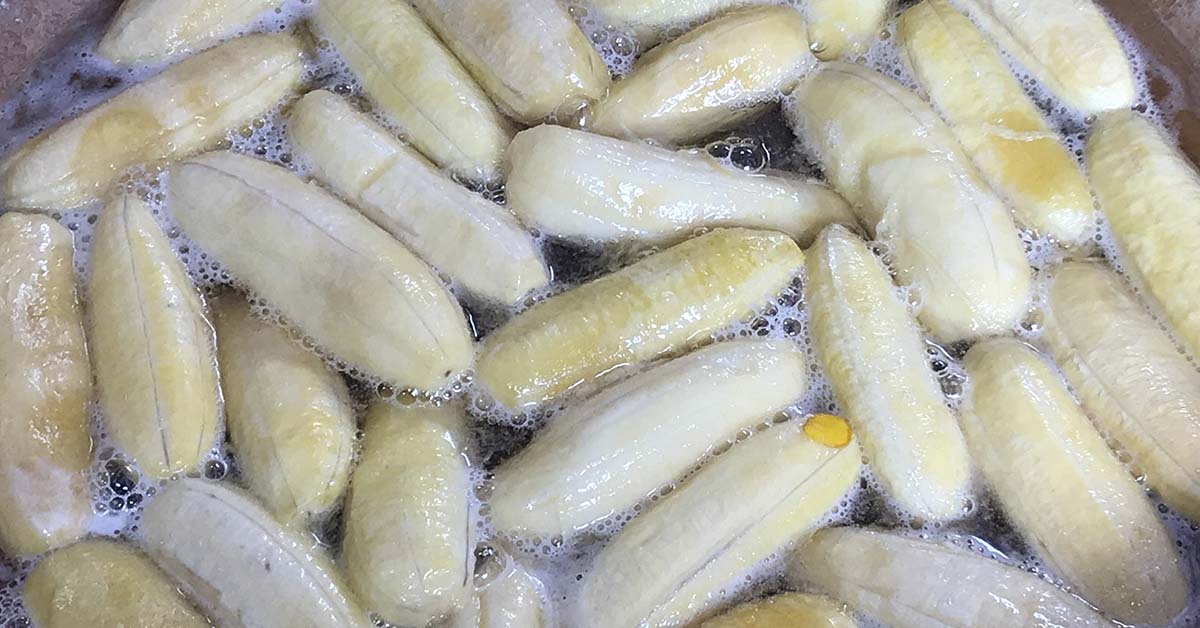Bananas are nutritious, and there are countless ways to consume them. The most obvious way to do that is to simply peel one and eat it. You might also freeze them to add to your favorite smoothie, or you could even make a delicious dairy-free ‘ice cream.’ Even those black bananas you forgot about are great for backing, but there is another nutritious way to use bananas: Banana Tea.
What is Banana Tea?
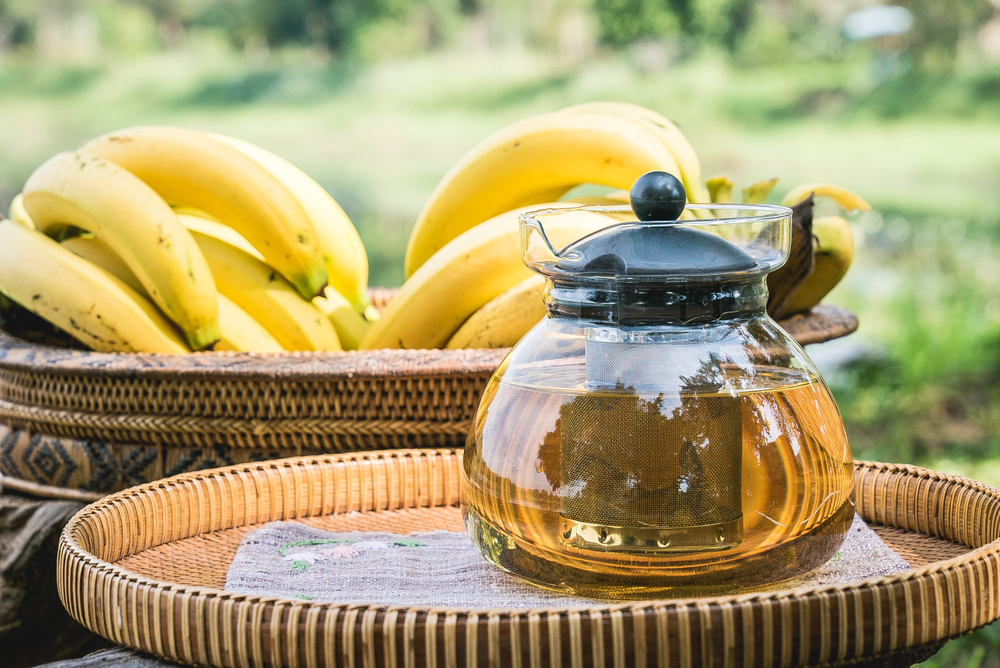
Banana tea is a unique blend of sweet and savory. It’s made by boiling a whole banana in hot water, then removing it, and drinking the remaining liquid. It can be made by boiling just bananas or including peels. If you include the peels, it will be even more nutritious. However, the flavor might be slightly different. Including the peel also means it takes longer to make, so many people ignore it.
Read More: 5 Tea Brands That Contained High Levels of Pesticides (+ Alternatives)
The Nutrition Facts of Banana Tea
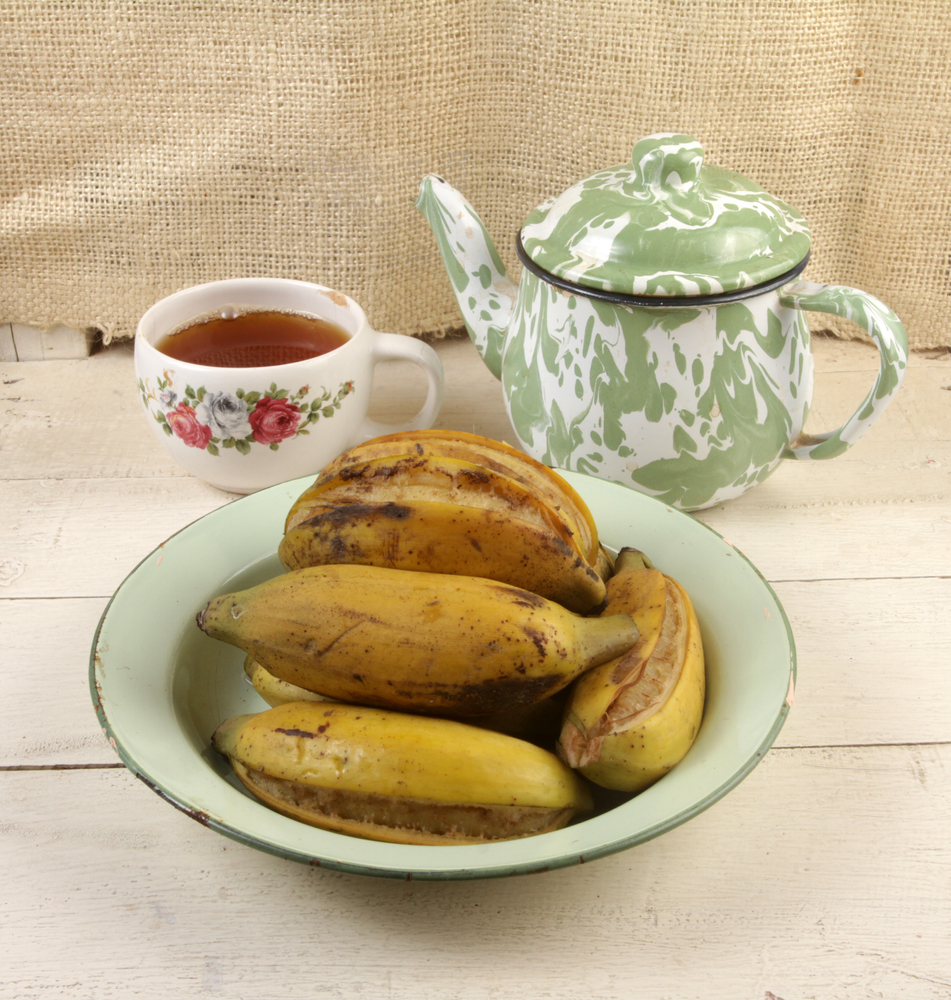
Banana tea contains potassium, vitamin B6, vitamin A, magnesium, copper, and manganese. You’ll also get some calcium, protein, and dietary fiber from this tea. Including the peel will mean a higher-fiber drink. Though you won’t get as many nutrients as eating whole fruit, you consume less sugar and calories. Both the whole fruit and banana tea can have their place in a healthy diet. (1, 2)
Health Benefits of Banana Tea
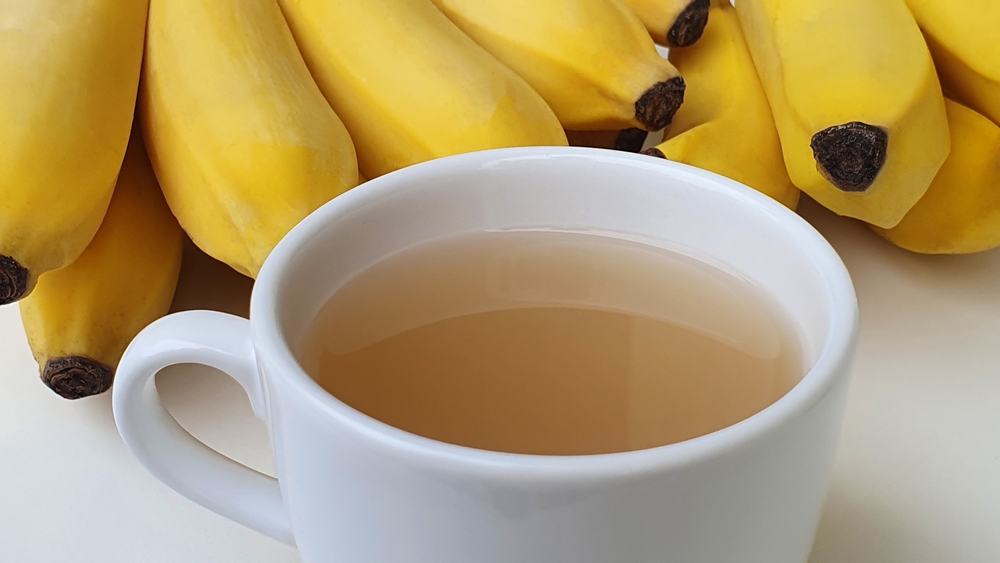
Banana tea has several potential health benefits to supplement an already healthy diet and lifestyle. These haven’t necessarily been studied extensively, which is why we say “potential” benefits. Some people might experience them while others may not.
Contains Antioxidants
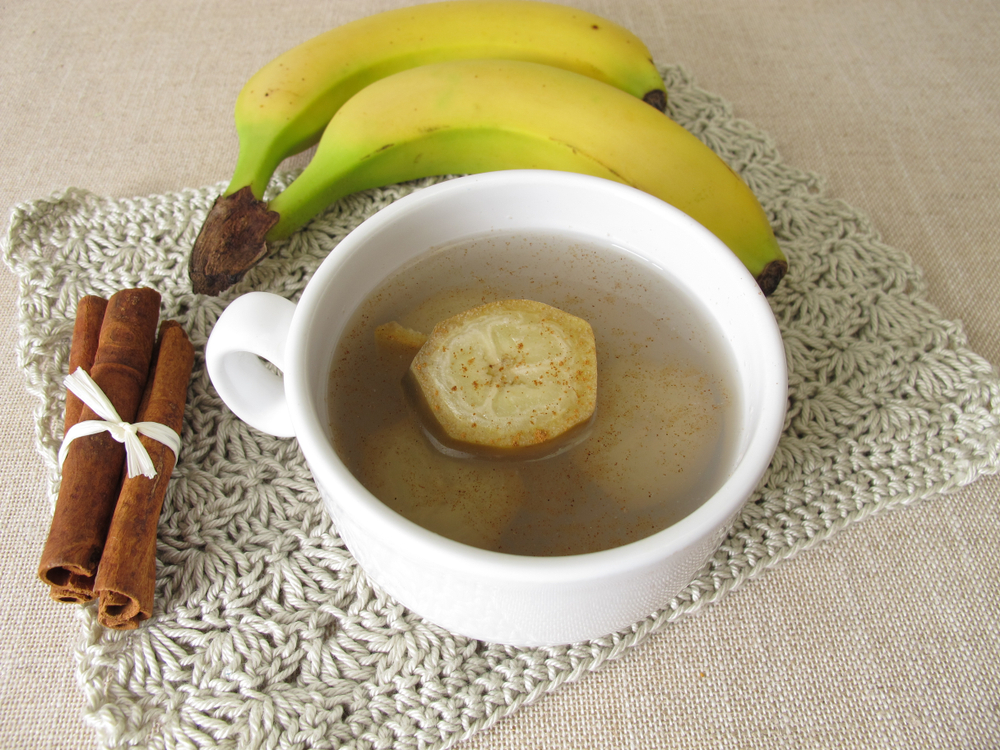
Bananas are a fruit, and fruits contain antioxidants. Therefore, drinking banana tea will also contain antioxidants. Including the peels means there will be more, as the peels include higher concentrations of these nutrients than the actual fruit itself. It is important to note that banana tea is not particularly high in antioxidant vitamin C because this vitamin is heat-sensitive. Most of it is destroyed during the brewing process. (3, 4)
May Promote Better Sleep
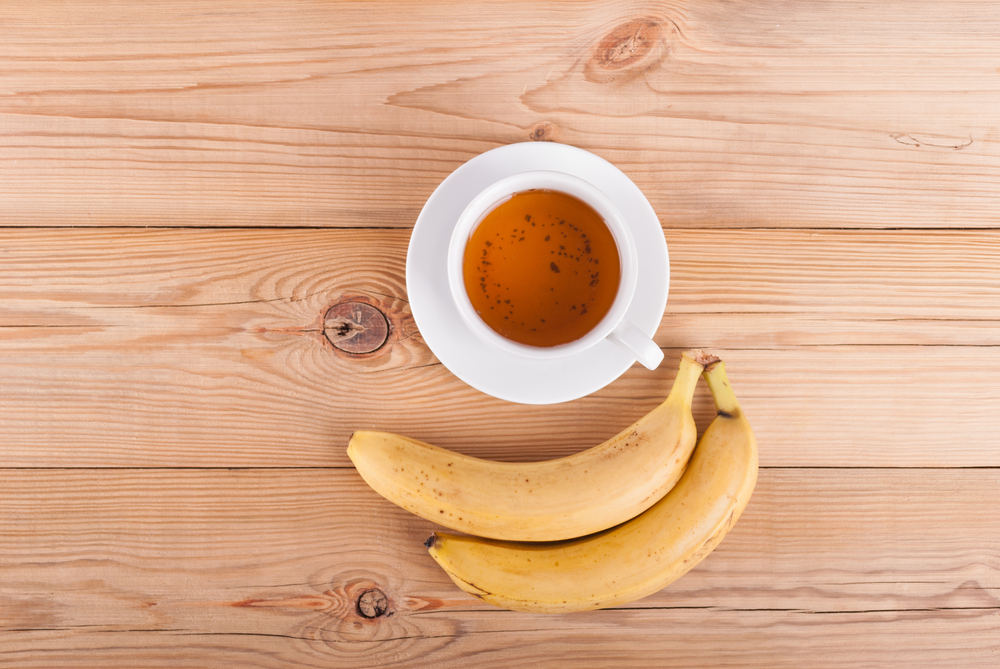
Banana tea may help you sleep better at night because it contains three sleep-promoting nutrients: Potassium, magnesium, and tryptophan. Potassium and magnesium promote muscle relaxation and can help you have a higher quality of sleep. Tryptophan is an amino acid that promotes sleep by helping your body produce melatonin—a hormone that helps regulate your circadian rhythm (your sleep-wake cycle). (5, 6)
May Prevent Bloating
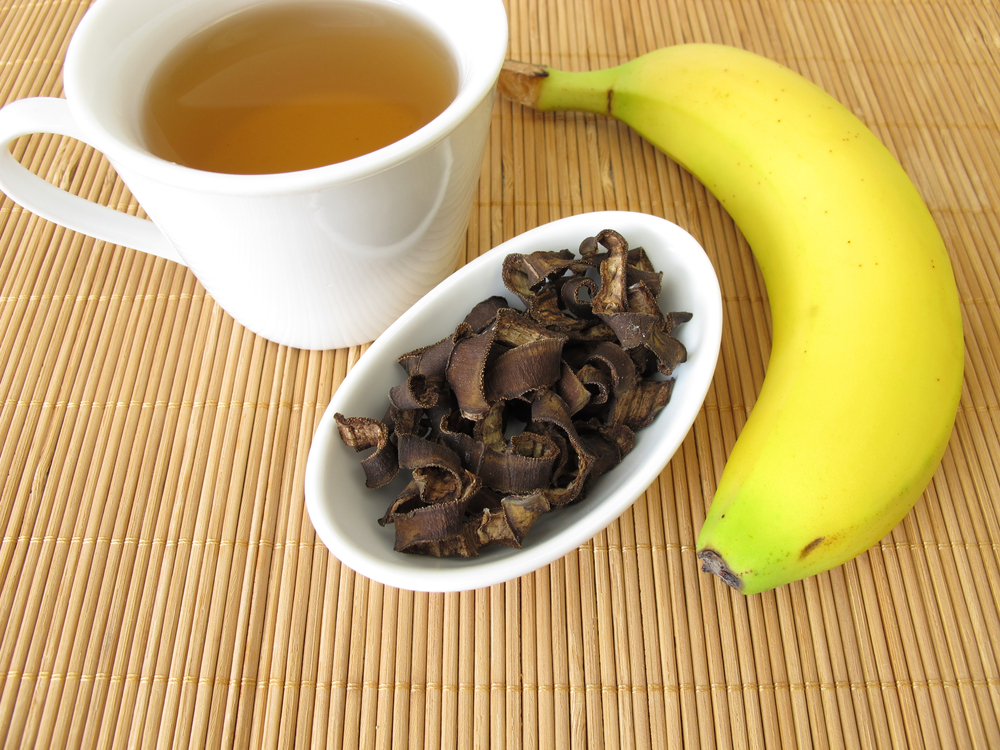
Banana tea is high in potassium, a mineral, and electrolyte that’s important for regulating fluid balance, healthy blood pressure, and muscle contractions. It works together with sodium to regulate your fluid balance. When sodium is too high, you will experience fluid retention and bloating. The potassium in banana tea may help to balance out your sodium levels and reduce fluid retention and bloating. (7)
Low in Sugar
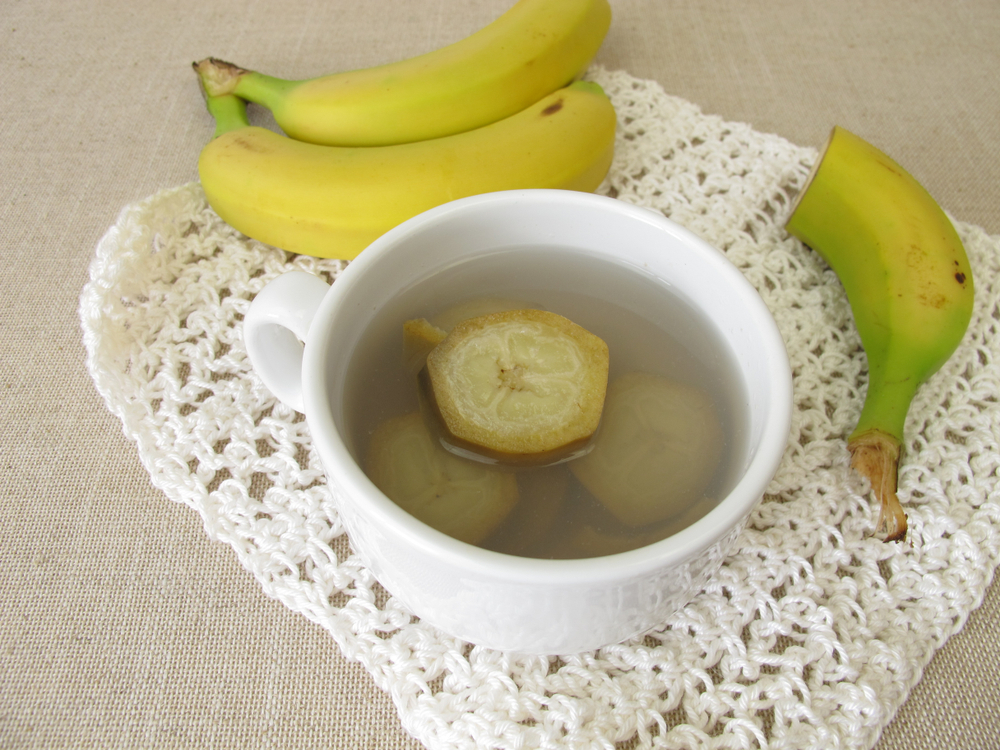
When you boil the bananas, only a small amount of the sugar in the bananas actually makes it into the tea. This makes it a low-sugar alternative to other high-sugar beverages. That being said, many people enjoy putting honey in their banana tea to improve its taste. Though honey is natural, it is still sugar, so be careful with how much you put in. Replacing sugar beverages with banana tea may help you decrease your sugar intake.
May Support Heart Health
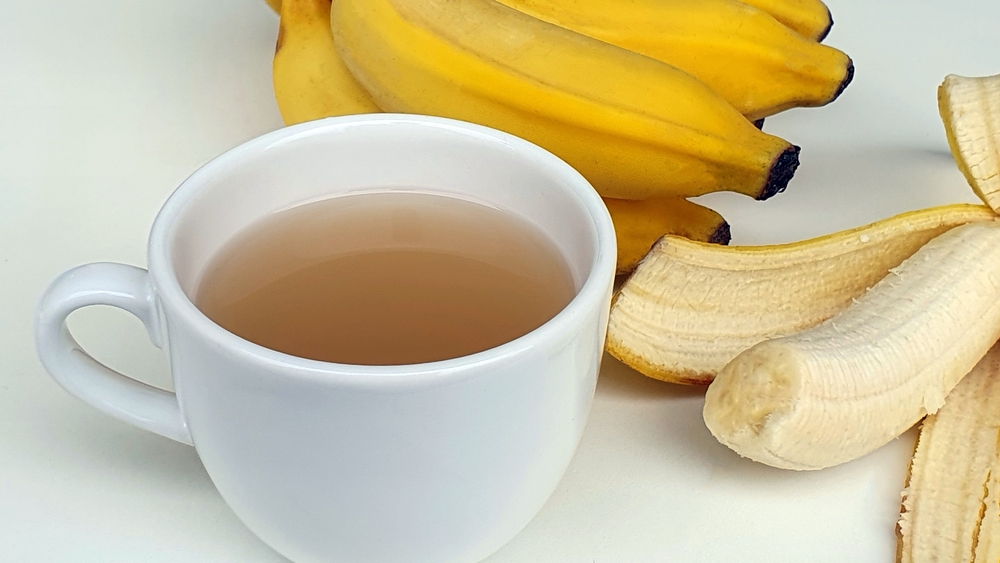
Banana tea is rich in potassium and magnesium, which can help to lower blood pressure. (8) Magnesium also helps to relax your muscles and nerves, which may help reduce stress levels. Drinking banana tea may help to improve your heart health and reduce the risk of heart attack or stroke by decreasing your blood pressure and reducing stress.
Read More: Top 10 Pesticide Free Organic Tea Brands & 7 You Should Never Drink
How to Make Banana Tea
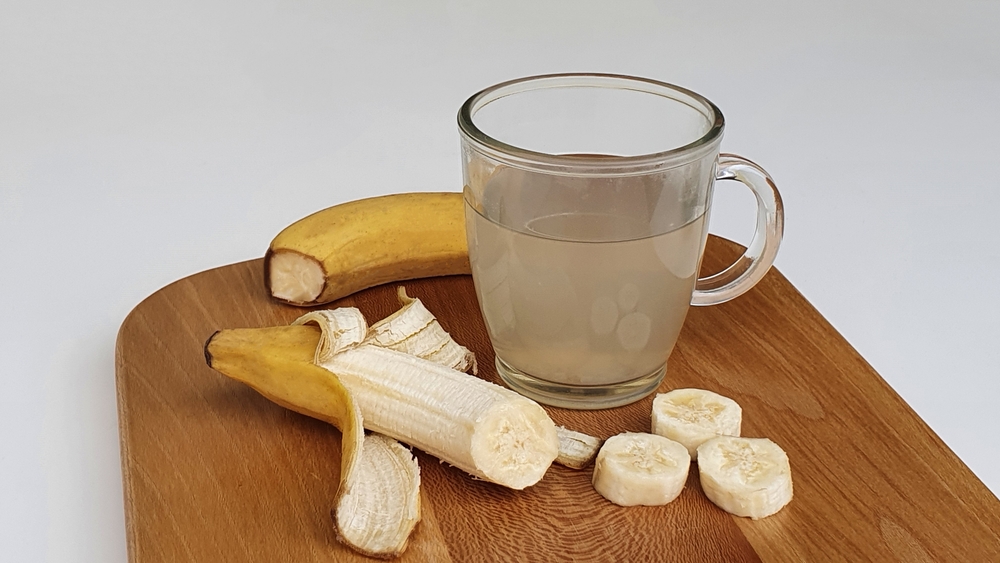
Put two to three cups of water in a pot and bring to a boil. If you are including the peel, wash the banana well and chop off both ends before placing it in the boiling water. If you exclude the peel, chop off the ends and remove it before placing it in the water.
Reduce the heat and allow the banana to simmer for 15 to 20 minutes. You may wish to simmer for longer if you keep the peel on. When the banana is simmering, add cinnamon and/or honey for added flavor. Remove the banana and enjoy. You can store any leftovers in the fridge for up to two days after making it. The leftover boiled bananas can be used for many other recipes, such as smoothies, banana bread, oatmeal, and more.
Read More: 13 Potentially Harmful Teas to Avoid During Pregnancy
Sources
- “Bananas, raw.” FDC
- “Magnesium and health outcomes: an umbrella review of systematic reviews and meta-analyses of observational and intervention studies.” NCBI. Nicola Veronese, et al. February 2020.
- “Bananas as an energy source during exercise: a metabolomics approach.” NCBI. David C Nieman, et al. May 17, 2012.
- “Effect of different cooking methods on the content of vitamins and true retention in selected vegetables. NCBI. Seongeung Lee, et al. December 2017.
- “Magnesium Intake and Sleep Disorder Symptoms: Findings from the Jiangsu Nutrition Study of Chinese Adults at Five-Year Follow-Up.” NCBI. Yingting Cao, et al. September 2018.
- “Effects of tryptophan-rich breakfast and light exposure during the daytime on melatonin secretion at night.” NCBI. Haruna Fukushige, et al. November 2014.
- “Physiology of fluid balance.” Science Direct. Iain Campbell. December 2009.
- “Potassium intake and risk of stroke in women with hypertension and nonhypertension in the Women’s Health Initiative.” NCBI. Arjun Seth, et al. October 2014.
- Banana Tea. Healthline
